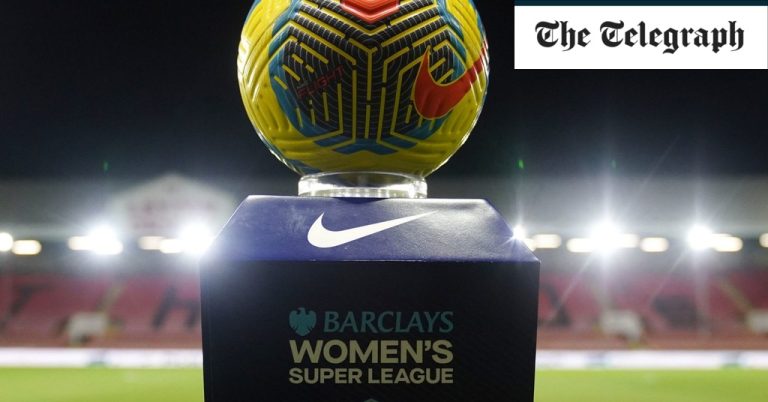“It’s so extraordinary to have this going ahead because the FA are the first governing body that we know of, in this country and probably in the world, to have mandated this training for staff across the pro game, and then they’ve taken it that one step further,” said Dr Emma Ross, the Well HQ’s chief scientific officer.
“Football is going to be an amazing vehicle to push the agenda forward because the need to keep players emotionally and physically healthy is demanding that we do this now. The FA have really stepped up and said, ‘We’re going to do it and we’re going to do it properly’ and that will really act as a flagship for other sports, to say, ‘This is what good looks like’ for looking after women in sport.”
The 24 FAHLs will receive additional education and support, including a course in spring 2024, while best practice guidelines will be delivered to clubs on pregnancy, postnatal care and the menstrual cycle. Medical staff across the England women’s set-up will also be closely involved.
Andy Hudson, the FA’s performance support manager for the women’s professional game, says enhancing understanding of women’s health across the game had “become increasingly urgent”.
Hudson added: “[This will] help to support the development of women’s professional footballers so that they develop not just as footballers but as people as well. That’s the really critical point for us, that’s inspiring, that we can potentially have a meaningful impact on the lives of those who are involved in the women’s game.
‘Things considered innovative will become normal’
“The FA and the league have done some of the heavy-lifting in this, so we’ve reduced the burden on the clubs by resourcing this, by investing in it, and making sure there is the associated level of practical support and associated expertise. The broad intention for this is to allow a rising tide to raise all ships, and so that things that were considered innovative will, down the line, be considered normal.”
Dr Ross is determined to plug the knowledge gap when it comes to female athletes understanding their bodies. She added: “I can’t stress enough how pioneering this project is. This is really pushing the boundaries of saying, ‘This a non-negotiable. If we’re going to support women in sport really well, this is what we have to do’.
“That data we got was mirrored in a big project done by the Government across all women across the UK, and its conclusion was that women, at every life stage, are ‘woefully uneducated’ about their bodies. Now these women are going to be much more empowered to make important decisions about their bodies. We should be expecting better body literacy for all women and all of these things hopefully help to shift the needle on that.
“An athlete who is happier, more comfortable, who feels supported and who feels like they belong, is going to play better. But I always boil it down to athlete availability. Whether it’s menstrual cycle symptoms, whether it’s not having the right sports bra, whether it’s not fuelling well, we know it affects the quality or quantity of training a player can do.
“So when it comes to performance, that’s not a marginal gain, that’s a no-brainer and it’s a huge opportunity.”
